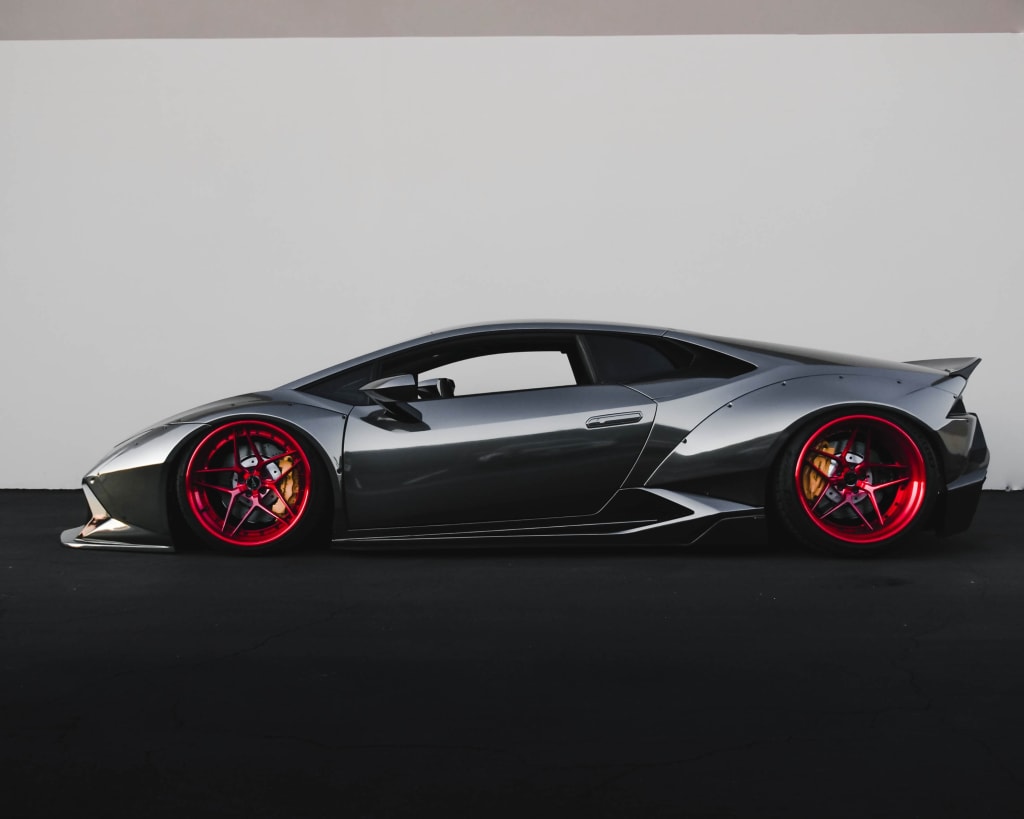Dollar-starved Pakistan imports 2,200 luxury vehicles
Dollar-starved

Dollar-starved Pakistan has recently imported 2,200 luxury vehicles, despite facing an acute shortage of foreign currency and a struggling economy. The imports, which include high-end cars from brands such as Mercedes-Benz, BMW, and Audi, have raised eyebrows and sparked debate within the country.
One of the major issues facing Pakistan's economy is the shortage of foreign currency, which has led to a shortage of essential goods and a decline in the value of the Pakistani rupee. The country is also facing a growing trade deficit, as imports continue to outstrip exports.
Despite these challenges, Pakistan has imported 2,200 luxury vehicles in the past year, at a cost of over $100 million. The imports include high-end cars from brands such as Mercedes-Benz, BMW, and Audi, as well as luxury SUVs and sports cars.
Critics argue that these imports are a waste of valuable foreign currency that could be used to import essential goods and services, such as medical equipment and food. They also point out that the country's struggling economy cannot afford to support the maintenance and upkeep of these luxury vehicles.
However, supporters of the imports argue that they provide jobs and economic opportunities for those involved in the import and sale of luxury vehicles. They also point out that many of these vehicles are purchased by wealthy Pakistanis who have the means to afford them.
Despite the debate, it is clear that the import of luxury vehicles is a complex issue with no easy solutions. On one hand, the country's struggling economy and shortage of foreign currency make it difficult to justify such imports. On the other hand, they do provide jobs and economic opportunities, and some argue that the taxes and duties paid on these vehicles provide a source of revenue for the government.
The government of Pakistan needs to find a balance between these competing priorities, and must consider the long-term impact of luxury vehicle imports on the country's economy. It should also consider alternative solutions, such as encouraging local manufacturing of vehicles and promoting exports, to reduce the country's dependence on imports and boost its foreign currency reserves.
It is also important to note that the import of luxury vehicles is not the only issue facing Pakistan's economy. The country is also struggling with high inflation, unemployment, and a lack of investment. The government must address these issues in order to create a sustainable and stable economic environment that can support the growth and development of all sectors of the economy.
Dollar-starved Pakistan is facing a severe shortage of foreign currency, yet the country continues to import luxury vehicles at an alarming rate. Despite the economic turmoil and the devaluation of the Pakistani rupee, the country imported 2,200 luxury vehicles in the past year, with the number expected to rise in the coming months.
The import of luxury vehicles has become a contentious issue in Pakistan, with many questioning the wisdom of spending precious foreign currency on such frivolous items at a time when the country is facing an acute shortage of dollars. The shortage of dollars has led to a sharp devaluation of the Pakistani rupee, resulting in skyrocketing inflation and a decline in the standard of living for many Pakistanis.
The import of luxury vehicles is also seen as a symbol of the growing income inequality in Pakistan, where a small elite continues to live a lavish lifestyle while the majority of the population struggles to make ends meet. The import of luxury vehicles is also seen as a sign of the government's lack of commitment to addressing the country's economic challenges and the failure to prioritize the needs of the majority of the population.
The government of Pakistan has been criticized for its failure to take adequate measures to address the economic crisis, with many blaming the current leadership for their lack of vision and inability to implement effective policies. The government has also been criticized for their failure to curb corruption and for their inability to attract foreign investment, which would help to alleviate the shortage of dollars.
In conclusion, the import of 2,200 luxury vehicles by Pakistan, despite its dollar-starved economy and acute shortage of foreign currency, has raised serious concerns among the public and policymakers. While the imports may provide jobs and economic opportunities, they also represent a significant drain on the country's foreign currency reserves. The government needs to find a balance between these competing priorities and consider alternative solutions to boost the country's economy and reduce its dependence on imports.
About the Creator
Naveed Jamal
Am content creator.






Comments
There are no comments for this story
Be the first to respond and start the conversation.